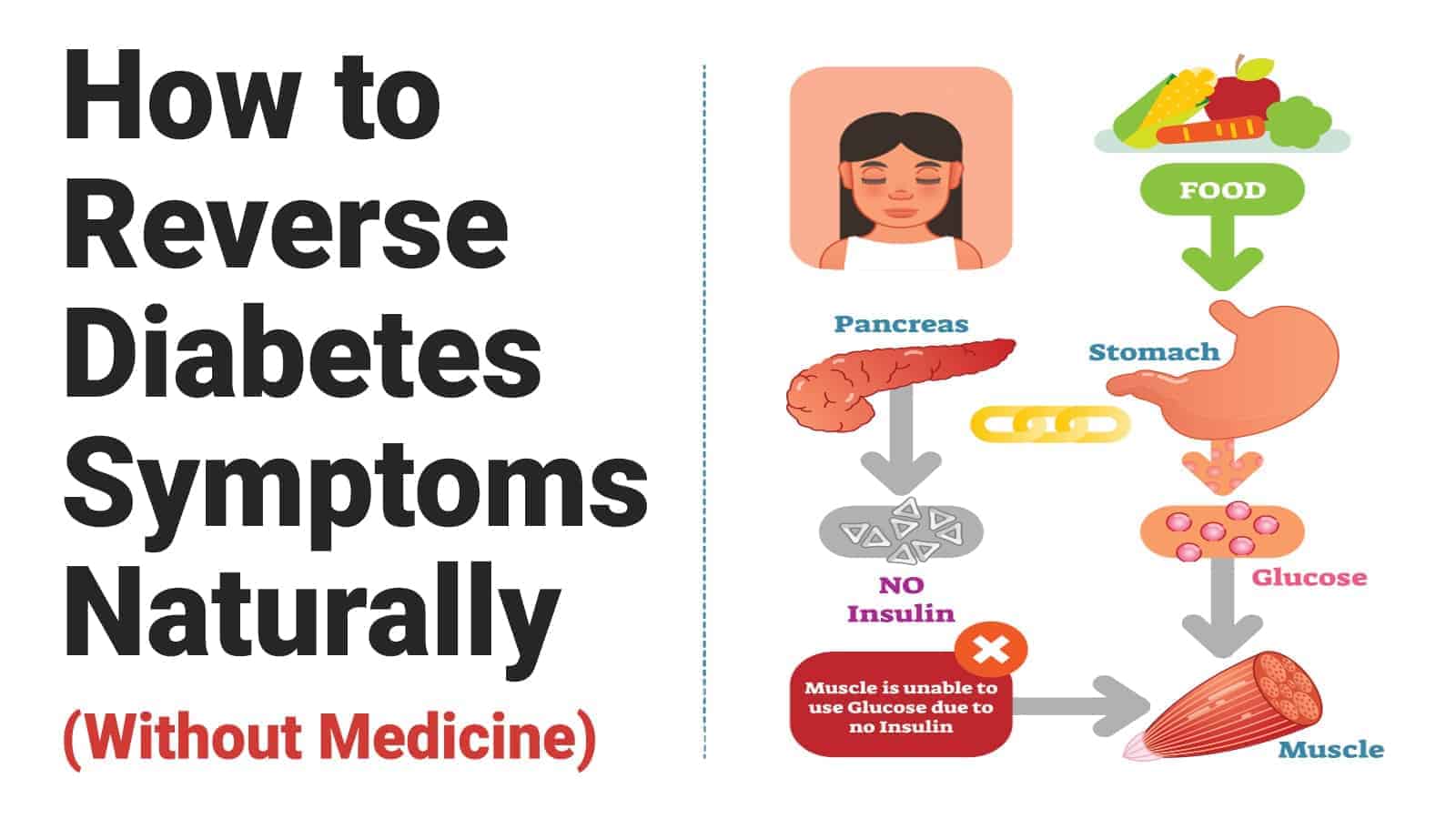If you have diabetes, you most likely understand the importance of taking your medication as prescribed, managing stress, and being physically active. However, your diet also plays a role in your overall health, especially when it comes to keeping blood sugar levels in check. But what if you’ve been recently diagnosed with diabetes, what lifestyle change should you implement for better health? In this article, we will answer that question and also take a look at ways to mitigate the ill-effects of the disease. Lastly, we outline the following the information contained in this article can help better manage your diabetes and change your life, and best of all, it only takes 21 days of consistent adherence.
SHOULD YOU GIVE UP THE FOODS YOU LOVE?
One of the biggest fears that newly diagnosed diabetic patients have is the prospect of having to give up all of the foods they enjoy in the name of good health. But is that really necessary, and are there any workarounds? Well, the axiom of “everything in moderation” is one that can apply to a diabetic diet. Unhealthy foods should only be eaten in moderation while the bulk of your diet should include fruits and non-starchy vegetables.
Of course, you’ll want to start with small diet changes, giving yourself time acclimate to a new way of eating. For example, you can start with one extra serving of vegetables and build on that by adding fruits like apples, pears, and berries to your diet. In doing so, you’ll not only improve your health but also control blood sugar. Although fruits are healthy, you’ll still want to factor-in fiber-rich fruits like bananas, for example, into your total carbohydrate servings each day.
EXERCISE AND DIABETES
As noted in the preface of this article, exercise is essential when it comes to managing diabetes. That said, you should aim for a minimum of 150 minutes of moderate exercise. According to health.harvard.edu, the benefits of exercise are wide-ranging; it’s ideal for weight management, lowering blood pressure, reducing cholesterol and, if you’re a diabetic, controlling blood sugar.
To that point, studies have shown that light to moderate exercise can increase the body’s sensitivity to insulin. The same also applies if you’re overweight and prediabetic as well; after those who are overweight/obese are twice as likely to be diagnosed with diabetes, but in addition to diabetes, your weight could also predispose you to additional health problems, including cancer, fatty liver disease, osteoarthritis, and much more. As far as the daily caloric intake for diabetics and prediabetics, here is what the National Institutes of Health recommends:
- 1,200 to 1,600 daily calories for petite women who are physically active and also medium-sized women who are interested in losing weight. The caloric intake also applies to medium-sized women who lead a sedentary lifestyle.
- 1,600 to 2,000 daily calories is recommended for larger-framed women interested in weight loss. This calorie range is also ideal for men who are at a healthy weight but do not exercise.
- 2,000 to 2,400 calories per day is recommended for large men or women who are physically active.
HOW REDUCING CARBOHYDRATES CAN HELP WITH BLOOD SUGAR
If you have high blood sugar caused by diabetes, cutting carbs may be the best decision you’ve ever made; however, it is important to note that age, activity levels, medication, and other extenuating factors can play a role in individual carb requirements. Once you have determined, with the help of a doctor or nutritionist, the number of carbs you need per day, you should turn to fiber-rich foods like low-fat dairy, whole grains, fruits, and vegetables to meet your carb intake for the day. Also, it would be a good idea to avoid refined grains and sugars since they can spike blood sugar.
FIBER AND DIABETIC MEAL PLANS
It’s common knowledge that fiber can help keep you regular, but did you know that fiber-rich foods can also stabilize blood sugar? And the benefits don’t stop there; fiber can also help you lose weight, prevent colon cancer, and ward off heart disease. So how much fiber should you consume each day? Well, women should aim for 25 grams per day while men should be consuming a minimum of 38 grams per day. In addition to non-fat dairy and whole grains, you should consider adding the following foods to your diet:
- Broccoli
- Artichokes
- Brussels sprout
- Lentils
- Bran Flakes
- Whole-wheat pastas
- Oatmeal
WHAT IF YOU’RE NOT A FAN OF FIBER-RICH FOODS?
Another way to add more fiber to your diet is by adding flax seeds or chia seeds to your meals. The products can be found in the health food aisle of most major supermarkets. Basically, you would sprinkle 1 to 2 teaspoons of the respective seeds over any meal, or add them to a protein shake/smoothie, to meet your daily fiber goals. Incorporating flax seeds and/or chia seeds into your diet is a great way to control blood sugar and also reduce high cholesterol.
HEALTHY FATS AND YOUR DIABETIC MEAL PLAN
Healthy fats are essential to any diet; however, when it comes to a diabetic meal plan, they are especially important. According to Erin Palinski-Wade, a fitness expert and author of the “2-Day Diabetes Diet,” diabetics should make it a point to limit saturated fats and consume healthy fats instead. Some of the foods that contain healthy fats include nuts, olive oil, and avocado.
SHOULD YOU AVOID ALL CONDIMENTS IF YOU’RE A DIABETIC?
There is a common misconception going around suggesting that if you’re a diabetic you should abstain from condiments. Although certain condiments like ketchup, which contains a high percentage of sugar, can spell trouble for your diabetic health, there are some that you, as a diabetic or prediabetic, can enjoy without jeopardizing your health. Some of these condiments include
- Balsamic vinegar
- Hot sauce
- Light salad dressing
- Salsa
- Mustard
Lastly, you should also be cognizant of your sodium intake as too much sodium can be just as dangerous as too much sugar. You should aim to keep your sodium intake to 2,300 mg or less each day; one way to accomplish this is to substitute table salt with dried herbs that provide maximum flavor with minimal sodium. Although high sodium doesn’t affect blood glucose levels, it can lead to hypertension and other health problems.
DIETING AND MANAGING DIABETES
It’s no secret that body weight can dictate who will and will not be diagnosed with diabetes, particularly type 2 diabetes. As previously noted, overweight or obese individuals are most likely to be diagnosed with the disease. In addition to the above tips regarding condiments and fiber-rich foods, certain diets can help you shed unwanted pounds and control blood sugar at the same time. Some of these popular diets include
Mediterranean Diet – This diet places a strong emphasis on whole foods consisting of vegetables, whole grains, fish, poultry, and nuts while limiting your consumption of red meat. This diet is considered an all-purpose diet in that it wards off heart disease, helps control blood sugar, and helps you to shed pounds quickly.
Dash Diet – Like the Mediterranean diet, the dash diet is multifaceted in that it can help control blood sugar and also lower your risk of heart and kidney disease. Unlike the Mediterranean, however, the food recommendations for the Dash diet have been shown to reduce comorbid conditions commonly associated with diabetes. And yes, this diet can also help you lose weight.
Ketogenic Diet – This diet is one that is predicated on consuming a very low amount of carb each day; having said that, you’re encouraged to speak with a physician to ensure this diet is a good fit for you. Nonetheless, the Ketogenic diet has been shown to reduce insulin resistance, which, in turn, helps you better control blood sugar levels.
THE RIGHT DIET TO CONTROL BLOOD SUGAR AND MANAGE DIABETES
Because there is an established correlation between diabetes and excess body weight, it is important that you choose a diet that fits with your health and weight loss goals. To accomplish this, you may want to consider working with a nutritionist or dietician, preferably one who is well-versed in diabetes, who can help you choose a diet that not only helps you lose weight but also keeps your blood glucose levels in check. If hiring a nutritionist is not feasible, consider a diet that is well rounded, consisting of whole foods, minimal sugar, lean proteins, and a healthy mix of fruits and vegetables.
In summation, managing diabetes is a lot of work but following the advice of your doctor and nutritionist/dietician can very well save your life. Also, learning how to control blood sugar and manage your weight can go a long way towards ensuring you live a long, healthy life.


















